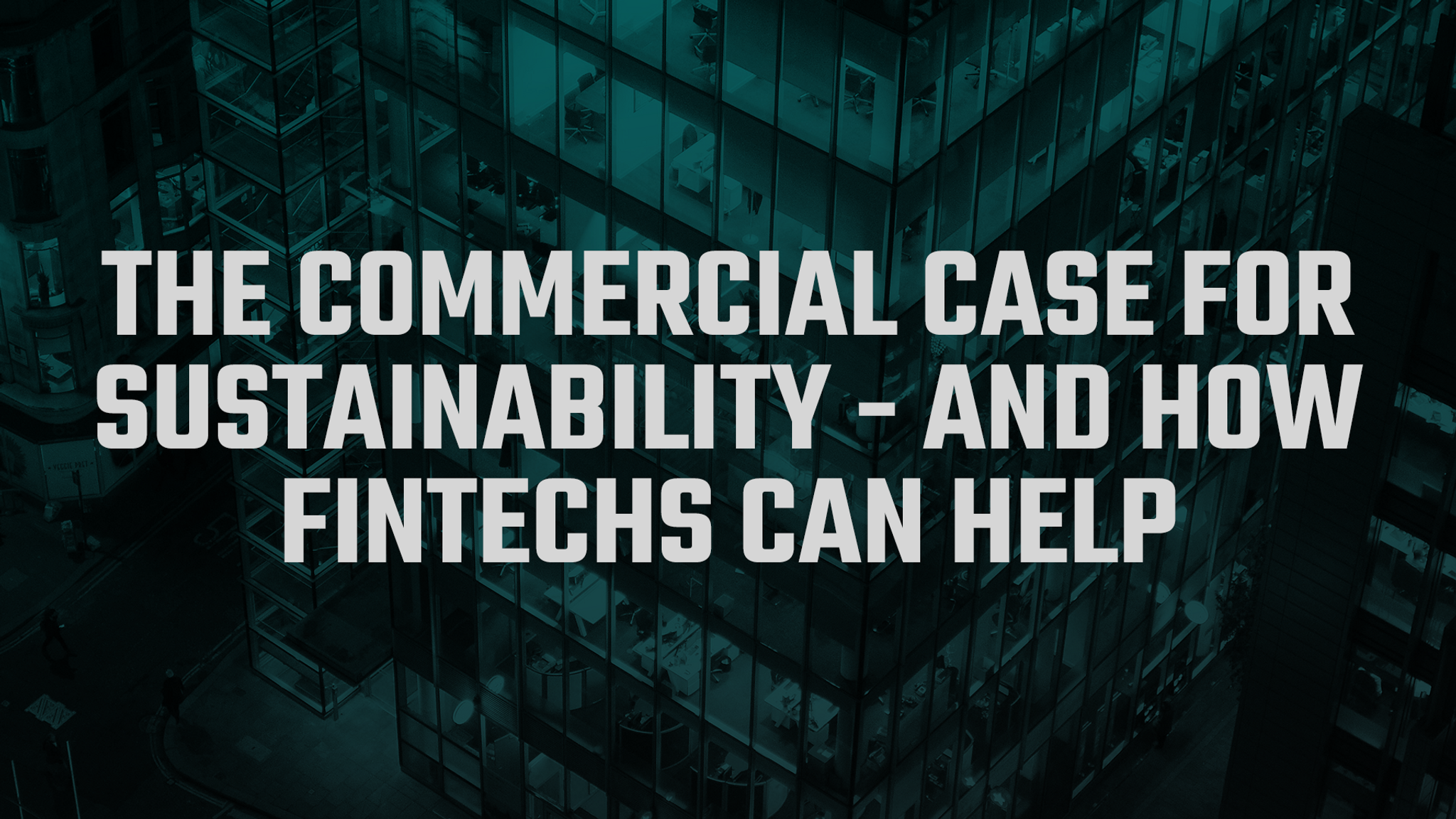The commercial case for sustainability – and how fintechs can help
Brian Collins
Published on

Let’s imagine it’s the 1800s – the height of the Industrial Revolution. A travelling salesman has visited your business. He’s offering machine tools, products that can transform the efficiency and output of your operation. “No thanks,” you tell him. “I’m fine working by hand.”
Dismissing technology is foolish. So too is hiding from change. What’s happening today – a world transitioning to a low-carbon, sustainable future – is no different to what happened during the Industrial Revolution. We are going through a period of immense change – and immense opportunity.
Ignoring sustainability now would be like disregarding the steam engine in favour of using horses and carts. It would be like turning your nose up at email in favour of always sending letters via snail mail.
Mark Carney, the former Governor of the Bank of England and the UN special envoy for climate action, has described the potential of reaching net-zero carbon emissions as the “greatest commercial opportunity of our time”. And, unlike in the 1800s, we’ve got a clear indication of the need for innovation and investment via the median of national net-zero targets.
In order to realise the goals of the Paris Agreement on climate change we need to see global emissions peak by 2030 and net-zero emissions be achieved by roughly 2050, if not before. That’s not going to happen without the development of solutions. Given the number of companies and governments that have set future targets for carbon neutrality, there will be a willingness to spend money in the name of sustainability.
We’re already seeing this among some of the world’s largest corporate names. Amazon, for example, introduced a $2bn venture investment programme in 2020 to support companies developing “zero-carbon” technology. Not to be outdone by its Big Tech rival, Microsoft has also set aside $1bn to invest in technology firms aiming to reduce carbon.
The opportunity for sustainable fintech amid investment for a low-carbon future is vast. A 2020 report produced by Boston Consulting Group and the Global Financial Markets Association estimated up to US$150tn of investment will be needed over the next three decades to facilitate the transition.
Sustainable fintech can fit into these opportunities in a number of ways. Firstly, startups can participate in funding some of the numerous climate-focused opportunities. This can either be via supporting legacy lenders with technology or by directly providing an avenue for money to reach environmental initiatives.
Secondly, fintechs can help shape consumer demand for “greener” products and services. Allowing customers, for example, to see the carbon footprint of their purchases could lead to calls for more environmentally friendly offerings, and consequently speed the development of these.
